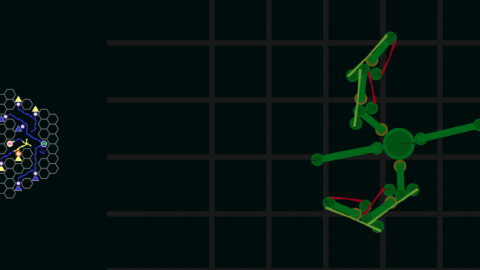
Oh look, Slither.io had a baby with your biology textbook
Smash-hit mitochondria simulator Agar.io (2015) and its recent knockoff Slither.io took certain corners of the internet by storm a while back. If you’re confused to why this is, here’s a hint: they’re super addictive. They’re easy to grasp, have a manageable skill curve, and ring that bell in your brain that says “One more try!” It’s a simple but foolproof formula—the same reason you kept coming back to Facebook games in 2011, and the same reason you haven’t deleted Stack from your phone even though you swear you’ll never touch that thing again. You can’t stop swiping. It sure resembles old entomology illustrations But…


